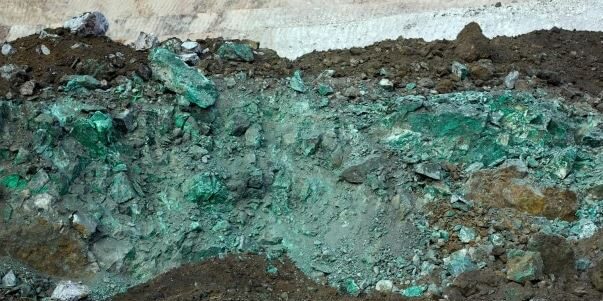
The Trafigura Group faces mounting difficulties with one of its major investments, a $600 million copper-cobalt project in the Democratic Republic of Congo (DRC).
The project, developed by longstanding partner Chemaf SA, has encountered cost overruns and has been hit by weak cobalt prices, leading to the need for additional funding to complete it successfully.
The metals business of Trafigura has been under scrutiny since a significant alleged nickel fraud came to light in February.
While Trafigura competes with Glencore Plc for the title of the world’s largest metals trader, its metals business has taken a backseat to the immense profits generated by its energy trading division in recent years.
In the past year, Trafigura had announced a $600 million loan for Chemaf to finance the construction of a massive copper and cobalt mine in Mutoshi, along with a processing plant at its Etoile operation in Lubumbashi.
However, the project’s budget has exceeded expectations, rendering it unable to be completed with the existing loan facility.
Consequently, Trafigura is seeking additional funding of approximately $200 million to $300 million from potential investors to see the project through to completion.
The actual utilization of the $600 million loan remains unclear, but it is known to be secured against Chemaf’s assets.
Trafigura and Chemaf are evaluating options to navigate the challenging market conditions, characterized by persistently low cobalt prices and inflationary pressures in the mining industry.
Chemaf has completed over 70% of the construction for the new Mutoshi operation, and both companies are actively collaborating to explore the most favorable routes to achieve first production.
The project’s attractiveness has waned due to a decline in cobalt prices, reaching their lowest point in nearly four years in May.
The market for cobalt hydroxide, produced by Chemaf and other Congolese miners, has been severely impacted by a surge in supply and a slowdown in Chinese demand.
The potential loss for Trafigura if the project fails is uncertain. While the loan was syndicated to banks led by the Eastern and Southern African Trade and Development Bank (TDB) last year, Trafigura retains significant exposure. TDB has not responded to requests for comment.
Trafigura’s partnership with Chemaf dates back more than 15 years, with founder and chairman Shiraz Virji having a history of business in Congo since the 1980s.
The $600 million investment is aimed at establishing a fully mechanized mine in an area that has long been subjected to artisanal mining practices.
However, plans faced a setback in 2020 when the Congolese government imposed a state-controlled monopoly on the sale of hand-dug cobalt, prompting the project’s pilot program for improving safety conditions for artisanal miners to be abandoned.
The project timeline had already been slipping, with initial projections for the Mutoshi mine’s production to begin in the third quarter of 2023.
However, due to delays, it was pushed back to the fourth quarter of the same year. Presently, completion is not anticipated for this year, according to informed sources.





